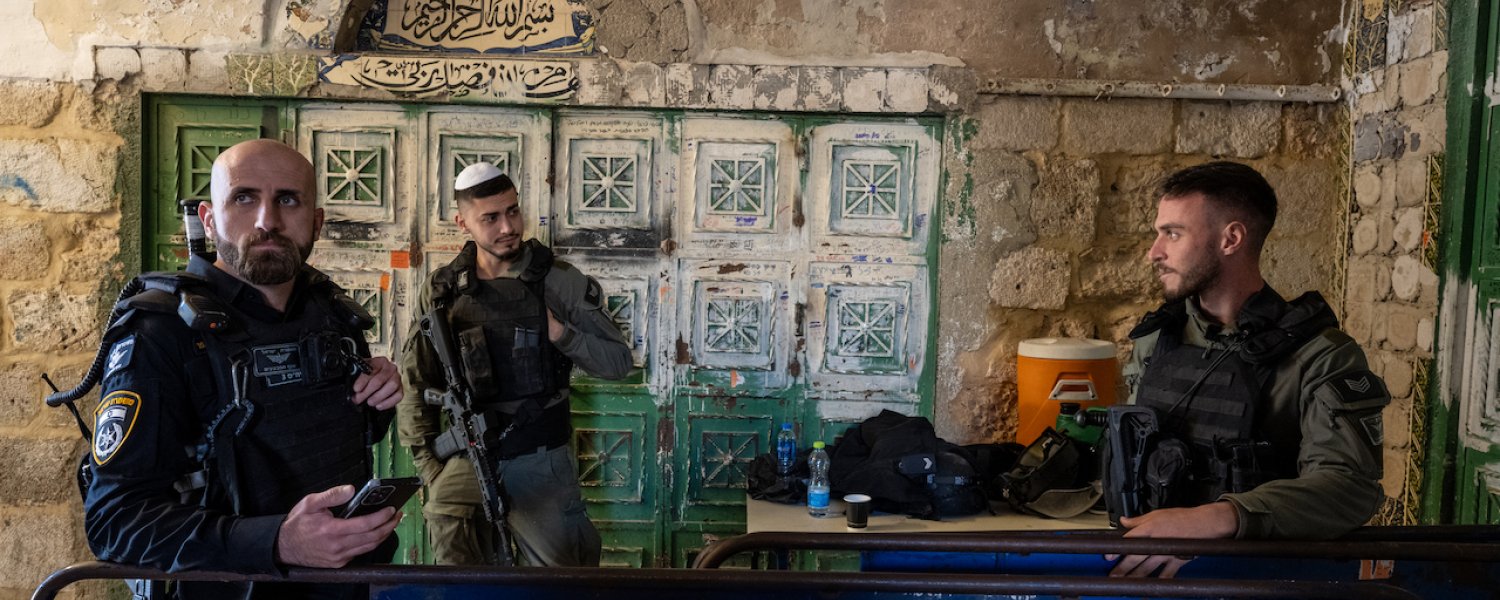Hamza Totah, the principal of the private all-boys Riyad al-Aqsa School located within Jerusalem’s Haram al-Sharif, made a surprise decision the second week of November. With 78 students and 7 classrooms, Totah decided to revert to online learning upon the advice of the Palestinian Ministry of Education.
While the decision of the Palestinian ministry came as a result of a shortage of money to pay teachers, Totah had a different motivation. The ability of students and teachers to attend schools inside the Haram al-Sharif complex has become unbearable since the war on Gaza began on October 7. Students, administrators, and teachers have been unable to reach the schools, and residents of the Old City who were able to access the gates of the al-Aqsa Mosque faced harassment by Israeli police, including having their school bags searched and their textbooks confiscated.
Mohammad, a student from the Old City who requested to remain anonymous for fear of Israeli retribution, told Jerusalem Story: “Every day, the police physically stop and search students and even employees of the waqf, including teachers and staff of the schools. No one is allowed to enter al-Aqsa, where their workplaces are located, without being physically searched, even though the police know and see the employees of the Jordanian waqf department daily.”
The school to which Mohammad was referring, a Jordanian waqf-run sharia school also within the Haram al-Sharif, refused to make the hard decision to revert to online learning. As a result, the school’s 228 students continue to face acute hardships. Not only is everyone subject to security-related physical inspection but students face additional searches, namely, the content of their books. If Israeli forces find pictures of the Palestinian flag or the logo of the Palestinian Authority in their books, they are arrested.




